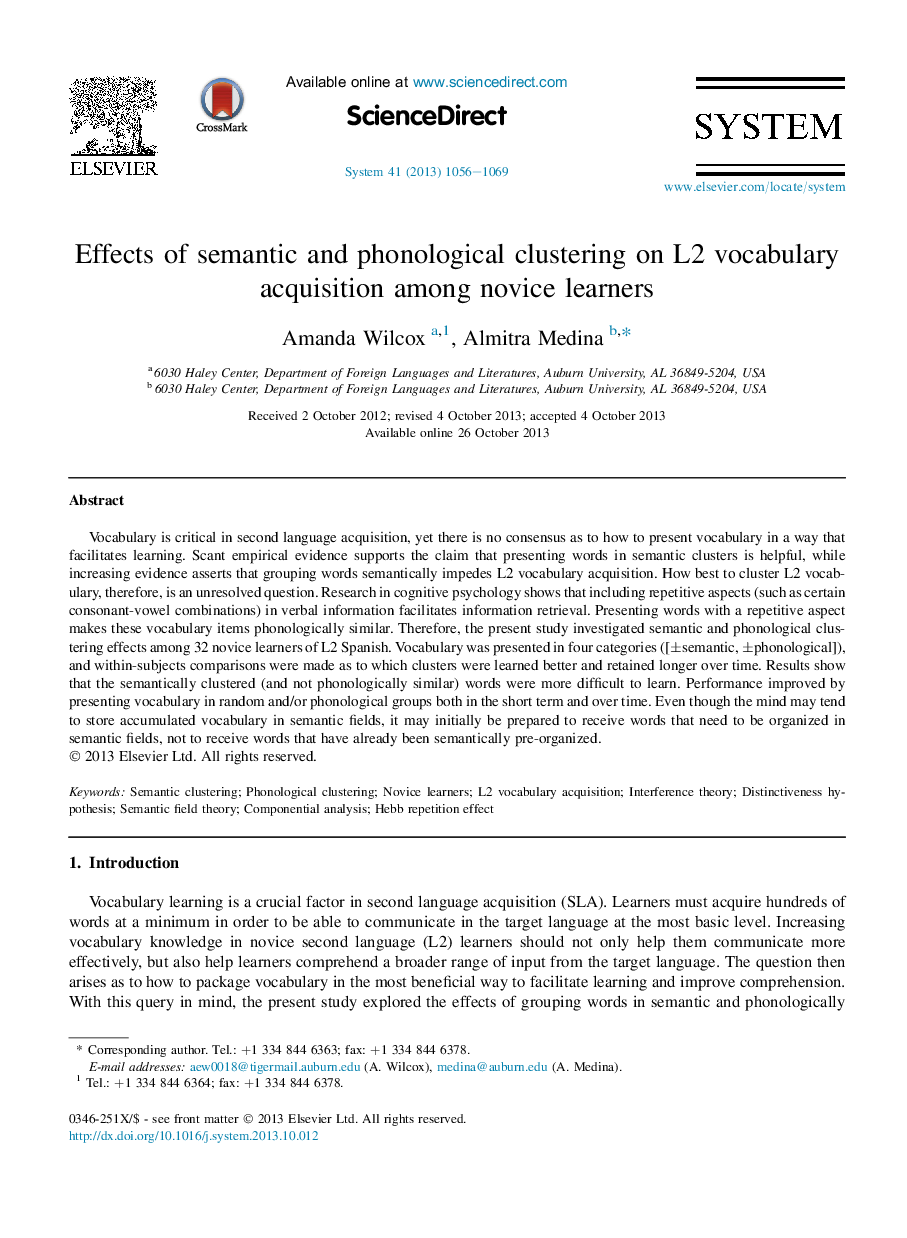| Article ID | Journal | Published Year | Pages | File Type |
|---|---|---|---|---|
| 373268 | System | 2013 | 14 Pages |
Vocabulary is critical in second language acquisition, yet there is no consensus as to how to present vocabulary in a way that facilitates learning. Scant empirical evidence supports the claim that presenting words in semantic clusters is helpful, while increasing evidence asserts that grouping words semantically impedes L2 vocabulary acquisition. How best to cluster L2 vocabulary, therefore, is an unresolved question. Research in cognitive psychology shows that including repetitive aspects (such as certain consonant-vowel combinations) in verbal information facilitates information retrieval. Presenting words with a repetitive aspect makes these vocabulary items phonologically similar. Therefore, the present study investigated semantic and phonological clustering effects among 32 novice learners of L2 Spanish. Vocabulary was presented in four categories ([±semantic, ±phonological]), and within-subjects comparisons were made as to which clusters were learned better and retained longer over time. Results show that the semantically clustered (and not phonologically similar) words were more difficult to learn. Performance improved by presenting vocabulary in random and/or phonological groups both in the short term and over time. Even though the mind may tend to store accumulated vocabulary in semantic fields, it may initially be prepared to receive words that need to be organized in semantic fields, not to receive words that have already been semantically pre-organized.
